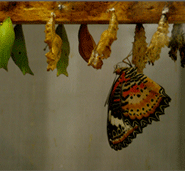“When you tell yourself the story of your life, the story of your day, you edit and rewrite and weave a narrative out of a collection of random experiences and events. Your conversations are fiction. Your friends and loved ones—they are characters you have created.” - Keith Ridgeway
Stories are teased out of our everyday. The things around us, within. All art is fiction. In that each work tells a story and must be deconstructed and read like a text. We look at an artwork and grasp its references, its multiple layers. We stare and weave a narrative inside our heads.
Why do we tell stories? Kerouac said “I’m writing this book because we’re all going to die.” Shakespeare’s sonnet 18 attributes art (words) with the ability, unlike us, to eventually transcend time.
“So long as men can breathe or eyes can see/
So long lives this and this gives life to thee.”
We create fiction and tell stories – through music, poetry, dance, sculpture – because it offers us a way to understand the world, and allows us to express our relationship, fraught or smooth as it may be, with it.
But mostly we create fiction, of all kinds, because one day, we will be gone and we hope it will outlive our little lives. In that way, a part of us carries on. Some of the stories I carry around with me have been filched from the oddest places. Late-night parties, winter evenings around the fire and the nights after a funeral.
“It was mostly at funerals that people told stories. On thethree night-long watches kept by the iengiapbriew—the household of the dead—when windows and doors stayed open for the spirit of the deceased. Sometimes a stool would tip over, a wooden shutter suddenly rattle or a tumbler fall to the floor. These were indications of a ghostly visit, some believed, mysterious signs that the one who’d passed away was making peace with the world they were leaving behind. On these nights, people whiled away the hours playing cards or carrom; in the kitchen women would splice betel nut and fold tobacco leaves for the next day’s visitors, they would talk quietly of the bereaved and the inconsolable. In a separate room, in a musty corner, a group of men would huddle around the chula, giving off warmth and light like a familiar, benevolent mistress. There were funny stories of drunks who wandered into empty churches and talked to stoic ceramic saints, of animal hunts that went heroically right, and sometimes tragically wrong, tales of journeys through jungles and wilderness involving characters they’d never met but who’d become real and intimate through years of retelling. Stories are told at festive, joyful gatherings, but the ones narrated at funerals are special because they reaffirm existence, of the listeners and the narrators. They are times of remembrance that haul the past into the present, and keep people alive even when they’re gone.” -“Sky Graves” in Boats on Land: A Collection of Stories
Fiction makes the world real. And keeps us alive.
Janice Pariat is a writer who is currently in between places, on tour with her recently published book of short stories, Boats on Land. She gives The Fuschia Tree a specially selected excerpt for this issue.
Editor's Note.
This issue may not be true, but its definitely real. These existential questions of truth and reality are ones that trouble us most in our late teens, when we are being transformed most rapidly, both physiologically as well as psychologically. Truth was always deduced by a process of logic: If a is more than b and b is more c, then a is more than c. That is true, and therefore a kind of axiom. Then, as we grew older, we learnt about the 'paradoxes'. If a is a liar and claims that this sentence is false, is it true?
Read MoreAlso in this issue
Illusion: Seeing Beyond Seeing
Meaning: In Search of Significance.
Melody: A Different Tune
Rhythm: Ordering Time






